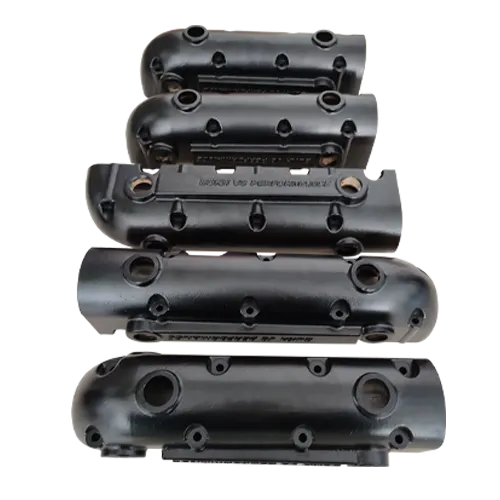Mobile:+86-311-808-126-83
Email:info@ydcastings.com
Exploring the Benefits and Applications of 7% and 208% Pipe Caps in Various Industries
Understanding 7 8 Pipe Cap A Key Component in Pipeline Systems
In the world of pipeline systems, essential components like pipe caps play a critical role in ensuring the safety, efficiency, and longevity of pipelines. Among the various specifications used in these systems, the term 7 8 pipe cap refers to a specific type of cap used to seal the ends of pipes, prevent leakage, and protect the internal environment from external contaminants. This article will delve into the significance of pipe caps, the specifics of the 7 8 designation, and their applications in various industries.
What is a Pipe Cap?
A pipe cap is a device that covers the end of a pipe. It serves to close off the open end securely, preventing fluids from leaking out and blocking debris from entering the pipeline. Pipe caps are made from various materials, including metals like steel and plastic, and they come in different sizes and specifications to fit a wide variety of pipes.
The importance of using a pipe cap cannot be understated; it helps maintain pressure within the pipeline and is essential for preventing contamination, especially in systems that transport sensitive materials such as oil, gas, or chemicals.
The 7 8 Designation
The designation 7 8 refers to specific dimensions and properties of a particular pipe cap. In this context, the numbers 7 and 208 typically represent the diameter and pressure ratings, which are crucial for selection according to the requirements of a given application.
Understanding these specifications is vital for engineers and technicians who design and implement pipeline systems. Choosing the correct pipe cap ensures that the system can withstand operational pressures and external conditions without failure.
- Diameter The 7 in the designation likely refers to the nominal diameter (in inches or millimeters) of the pipe it is designed to fit. This means that a 7-inch cap would be suitable for a 7-inch diameter pipeline.
7 8 pipe cap

- Pressure Rating The 208 could refer to the pressure rating of the cap, indicating the maximum pressure the cap can withstand. Using a pipe cap that does not meet the required pressure rating can result in leaks or catastrophic failure.
Applications of 7 8 Pipe Caps
The applications of pipe caps like the 7 8 can be found across various industries
1. Oil and Gas In this sector, pipeline integrity is paramount. Pipe caps are used extensively in offshore drilling operations, refineries, and transportation pipelines to ensure fluids do not leak and to maintain pressure.
2. Water Treatment Facilities Pipe caps are used to seal pipes that are temporarily not in use, thereby preventing contamination and ensuring that water quality is not compromised.
3. Chemical Processing For facilities that handle hazardous materials, proper sealing with pipe caps is crucial. The 7 8 pipe caps can provide a secure seal, reducing the risk of spills and exposure.
4. Construction and Irrigation In construction projects that involve temporary or permanent piping systems, caps can help manage water flow and prevent blockages.
Conclusion
The role of pipe caps, particularly the 7 8 type, is fundamental in the realm of fluid transportation and pipeline management. These components not only ensure the operational efficiency of pipeline systems but also contribute significantly to safety and environmental protection. Understanding the specifications such as diameter and pressure ratings is essential for anyone involved in the design and maintenance of pipeline systems. As industries continue to innovate and expand, the importance of reliable and efficient piping solutions will only grow, emphasizing the need for quality components like the 7 8 pipe cap.
-
Why Should You Invest in Superior Pump Castings for Your Equipment?NewsJun.09,2025
-
Unlock Performance Potential with Stainless Impellers and Aluminum End CapsNewsJun.09,2025
-
Revolutionize Your Machinery with Superior Cast Iron and Aluminum ComponentsNewsJun.09,2025
-
Revolutionize Fluid Dynamics with Premium Pump ComponentsNewsJun.09,2025
-
Optimizing Industrial Systems with Essential Valve ComponentsNewsJun.09,2025
-
Elevate Grid Efficiency with High-Precision Power CastingsNewsJun.09,2025











